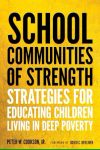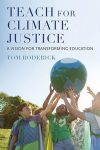
Review by Eleanor J. Bader
Michigan State University professor Josh Cowen’s The Privateers: How Billionaires Created a Culture War and Sold School Vouchers is a potent indictment of the role school vouchers play in undermining public education. It’s a timely, insightful, and enraging book.
Cowen reports that the push for vouchers – which enable children to attend private schools with public dollars – began in 1954 when Brown v. Board of Education was decided. Fearful of court-ordered school desegregation, a slew of white parents sought ways to keep their children out of mixed classrooms. They were soon aided by racist legislators and theorists, including economist Milton Friedman, who helped them strategize. As fears about public school safety ramped up, their efforts picked up speed with eleven states currently providing universal school vouchers to any family that wants them.
That number, Cowen writes, is likely to rise.
This, despite the program’s consistent failure to prepare kids for academic progress – as measured by standardized test scores. But low grades don’t faze voucher proponents, a deeply connected network of donors (the Bradley, DeVos, Koch, Walton, and Olin funds) that dovetail with conservative political groups (The Heritage Foundation and Manhattan Institute), grassroots community activists, and professors from prestigious universities. All favor privatized education as well as book bans, censored curricula, and the enactment of anti-LGBTQIA policies.
Cowen’s analysis of how vouchers have fed into this broader conservative agenda makes it essential reading for supporters of public education. If being forewarned allows us to be forearmed, The Privateers elucidates the many challenges ahead and suggests ways to successfully resist the right’s game plan.
The Privateers: How Billionaires Created a Culture War and Sold School Vouchers by Josh Cowen. Harvard Education Press, September, 2024.
Reviewer bio: Eleanor J. Bader is a Brooklyn, NY-based journalist who writes about books and domestic social issues for Truthout, Rain Taxi, The Progressive, Ms. Magazine, the Los Angeles Review of Books, and The Indypendent.



